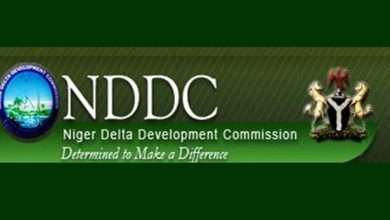Nigerian government urged to prevent human rights abuses in the Niger Delta
Amnesty International says the planned sale of Shell’s operation in the region could prevent those impacted by oil pollution from receiving justice
THE PLANNED sale of oil giant Shell’s operations in the Niger Delta must not worsen human rights in a region marred by decades of oil pollution Amnesty International has warned.
The human rights organisation is urging Nigeria’s new government, which was sworn in last week, to ensure that the sale will not prevent victims of oil pollution from receiving justice and that it will also put others at danger of mistreatment in the future.
Its new report titled Tainted Sale? suggests a range of precautionary measures and interventions aimed at safeguarding the rights of individuals who may be impacted by Shell’s intended sale of its onshore oil assets in the Niger Delta, valued at approximately $3 billion.
Mark Dummett, Amnesty International’s Head of Business and Human Rights, said: “For decades spills have damaged the health and livelihoods of many of the Niger Delta’s inhabitants. Shell should not be allowed to wash its hands of the problems and leave. Shell has earned billions of dollars from this business and it must make sure that its withdrawal does not have negative human rights and environmental consequences.
“By exercising appropriate oversight of Shell’s sale, Nigeria’s incoming administration has a unique opportunity to demonstrate its determination to uphold and protect the human rights of its citizens, including their rights to an adequate standard of living, clean water, and health. We are also calling for effective remedy for people whose rights have long been abused.
“We urge the new government, under President Bola Tinubu, to ensure Shell’s sale does not end or limit the company’s liabilities. As a condition of sale, it should require Shell to provide a full assessment of all existing pollution in the delta, ensure it has provided satisfactory remediation for any damage, and that local inhabitants’ concerns about the sale process are fully appraised and addressed.
Dummett added: “The government should consider requiring Shell to act as a guarantor to ensure any purchaser is capable of making good and remediating damage caused by any future spills and that any buyer is committed to transparency, environmental compliance, consultations with communities, and limiting greenhouse gas emissions.
“Of course, rather than finding buyers and wringing the last drops of oil from a region so long blighted by the industry, the better option would be remedying the harms caused, and phasing out production.”
Shell’s involvement in Nigeria’s Niger Delta region dates back to the 1950s when the company began its operations there. Over the decades, the activities of Shell and other oil companies in the area have had significant adverse effects on the local population.
These spills have led to widespread pollution, affecting groundwater, drinking water sources, agricultural land, and fisheries, thereby damaging the health and livelihoods of the Niger Delta inhabitants. The impact of the pollution has been severe, with studies indicating increased neonatal mortality rates and health impairments in children living within 10 kilometers of oil spill sites.
The Nigerian government has played a role in this issue as well. While Shell is not solely responsible for the pollution in the Niger Delta, the government has an obligation to ensure that the divestment of Shell’s operations does not exacerbate human rights abuses in the region.
Protestors and campaigners, such as the late Ken Saro Wiwa, have been instrumental in raising awareness about the human rights and environmental issues caused by Shell’s activities in the Niger Delta.
Saro Wiwa, an environmental activist and writer, organized the Movement for the Survival of the Ogoni People (MOSOP) to advocate for the rights of the Ogoni ethnic group in the Niger Delta. He drew international attention to the situation through protests and campaigns against Shell’s operations, demanding environmental justice and compensation for affected communities.
Saro Wiwa was executed by the Nigerian government in 1995, further highlighting the ongoing struggle faced by activists in the region.
- The Voice




